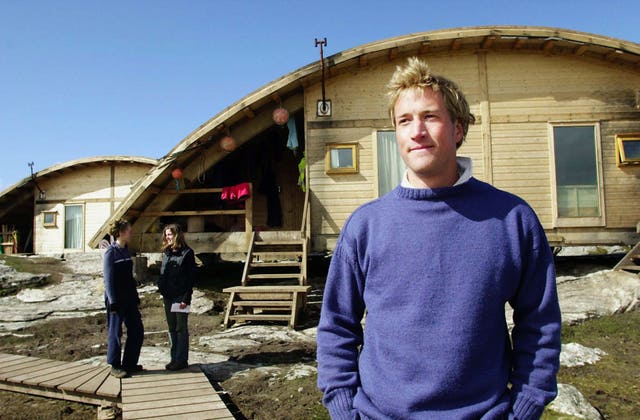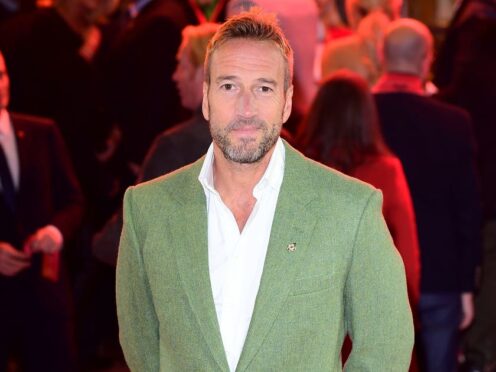Broadcaster and adventurer Ben Fogle has said he hopes his latest TV venture will not “damage the fragility” of the location where filming took place.
As part of Ben Fogle & The Lost City, he spent 10 days in the off-the-grid community, meeting the individuals who have chosen to live at Slab City, an isolated commune in the Californian desert.
The 48-year-old spoke of his concerns that drawing attention to the community may result in an influx of tourists and interference from local authorities.
“I do genuinely worry that this show might put too much of a spotlight on it,” he told the PA news agency.
“If you highlight somewhere extraordinary, it does have the potential to damage it, by suddenly enlightening millions and millions of people… I think people will be quite bowled over by it, I was.”
Many of Slab City’s residents retreated to the community in the Sonoran Desert after finding themselves marginalised from society.
Fogle said most viewers and tourists would find a “wretched place” if they were to visit.
He added: “What I would say to try and put people off is that the reason it was so extraordinary was because I actually immersed myself.
“I was with people, I was living there, I was part of it.
“And I don’t think as a tourist driving through that you would necessarily see that. I think you’d actually see quite a wretched place.”
Fogle added that this is not the first time he has been worried after filming a show in a remote location.
He said: “There are places where I’ve been on shows, like the Chernobyl documentary, where I think it was probably only Covid that prevented a massive spike in people going to have a look around, because people were truly blown away by Pripyat and this whole extraordinary place.
“And the same goes for Slab City. And I hope that I haven’t and won’t damage the fragility of that place by making the show.”
Fogle told PA that his interest in alternative ways of living came from struggling with sports and academia at school which meant he did not feel like a “conformist”.
He said: “I’ve always been a little bit alternative. A lot of people may laugh and go, ‘What do you mean? How can you be alternative? You wear chinos and a shirt and you’ve got short back and sides’.
“But it’s more alternative just in that I’ve always been curious about other people, and how they live their lives.”

Fogle said Slab City’s residents are almost entirely cut off from events occurring in the rest of the world, which they refer to as “Babylon”.
“There were people who were oblivious to Covid, there were people who just didn’t care about Covid,” he said.
“I didn’t meet anyone who was worried or anxious about Covid. I think they’re more worried about having a roof over their head, having enough food, not being burnt out, making something of their lives.
“So I think when you’re in somewhere like Slab City, the outside world, outside news, you don’t need to add that as an extra burden to what is already a pressure on your life, and make no mistakes, there are huge pressures still living in Slab City.
“It is not the utopia that I kind of wanted it to be, but it does give people hope in a world, namely Babylon, where we just don’t tolerate homelessness, we don’t tolerate drug addiction and we’re not very good at working with or accepting people with quite severe mental health problems.”
Slab City derives its names from the concrete slabs that remained after a Second World War training camp was destroyed.
Ben Fogle & The Lost City will air on Channel 5 on April 21 at 9pm.
